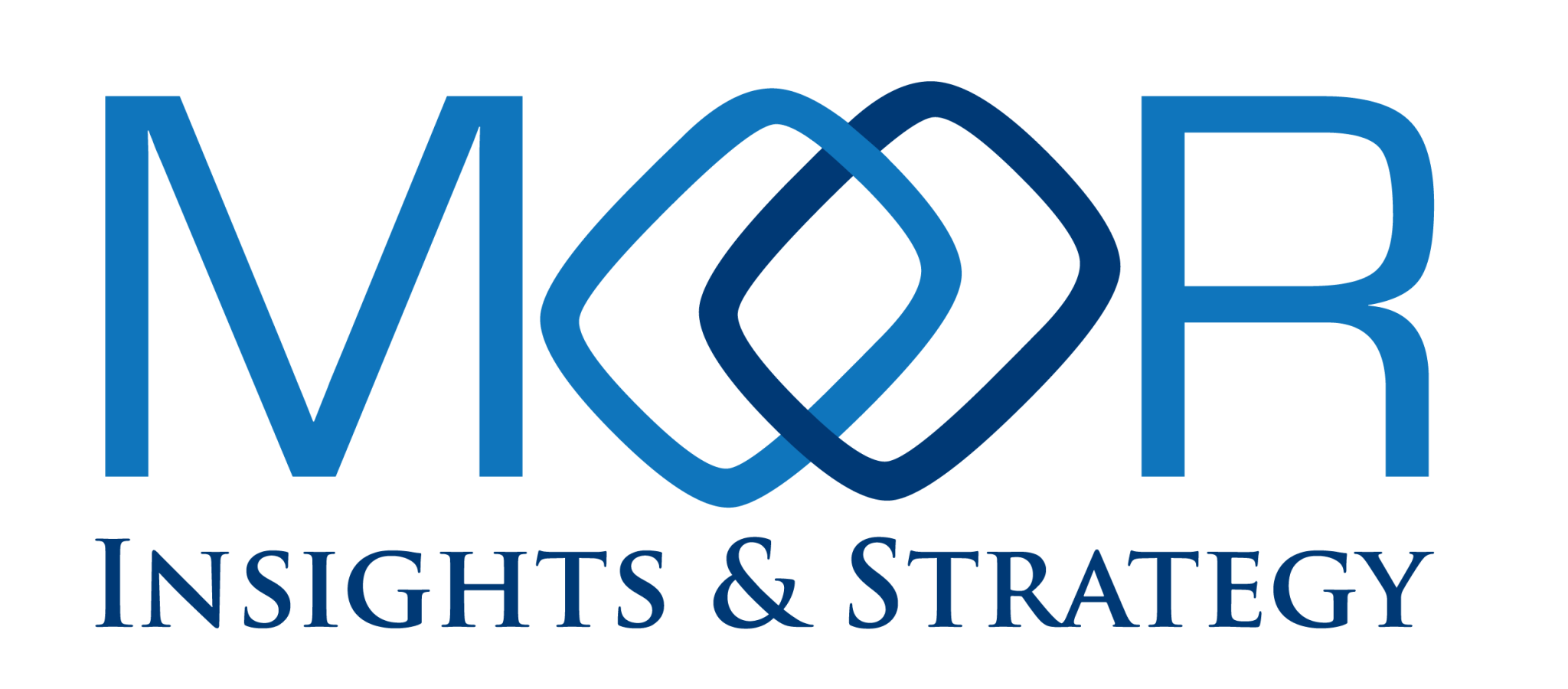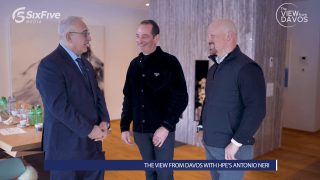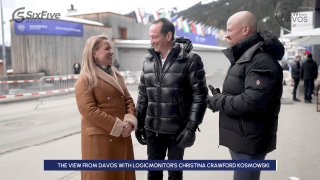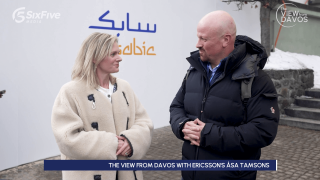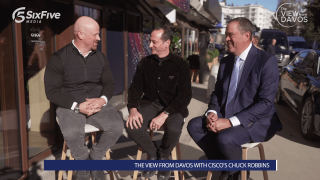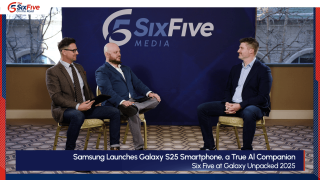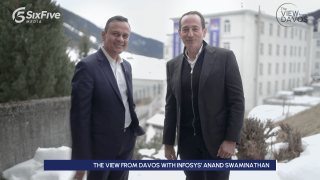On this episode of the Six Five On the Road, hosts Patrick Moorhead and Daniel Newman are joined by Dell’s Michael Dell, Chairman & CEO, for a conversation on how Dell Technologies is leveraging AI to pioneer advancements in technology and society. Our discussion delves deep into the role of AI in driving human progress, marking a significant leap in innovation, collaboration, and responsible technology use.
Their discussion covers:
- Insights from Dell Tech World 2024 and the significance of Dell’s announcements and the company’s drive towards innovation
- Integration of AI in Dell’s products and services, enhancing their offerings
- The expansion and nourishment of Dell’s ecosystem through strategic partnerships
- Addressing the dual aspects of challenges and opportunities in AI integration within society
- Celebrating Dell’s 40th anniversary and looking ahead to the future of Dell Technologies
Watch the video below, and be sure to subscribe to our YouTube channel, so you never miss an episode.
Or listen to the audio here:
Disclaimer: The Six Five Webcast is for information and entertainment purposes only. Over the course of this webcast, we may talk about companies that are publicly traded and we may even reference that fact and their equity share price, but please do not take anything that we say as a recommendation about what you should do with your investment dollars. We are not investment advisors and we ask that you do not treat us as such.
Transcript:
Patrick Moorhead: The Six Five is on the road here at Dell Technologies World 2024. We are in Las Vegas, Nevada. This event is off the chain. I mean it’s AI pretty much everything. AI infrastructure, AI PC, AI software, AI services, and all the partners that bring this together. Daniel, that keynote was pretty awesome.
Daniel Newman: Yeah, it was great. I mean, a number of people that you and I work closely with, respect very much, different perspectives. We had silicon, we had infrastructure and deployment, we had software. We were at ServiceNow recently and heard a lot of this from Bill McDermott. We were at GTC and heard a lot. It’s great to see it all come together. And with that group on stage, what we were really seeing is this left to right, the partnerships, the ecosystems, and all the enthusiasm. And Pat, I have to say it was just really refreshing to see it, hear it and feel it. And you can feel it out there on the floor as well.
Patrick Moorhead: Let’s just jump right in. I mean, our guest needs no introduction. Michael Dell, great to see you.
Michael Dell: Great to be with you guys.
Patrick Moorhead: Gosh, happy 40th birthday-
Michael Dell: Thank you.
Patrick Moorhead: … to the company. And I got to tell you, I really loved your book because it not only gave you the whole story of Dell, which also put it out there personally, I just wanted to thank you for that.
Michael Dell: Well, yeah, it was a fun opportunity to kind of tell the real story of what happened. And also, I don’t do this very often, but what I was feeling, what I was thinking through all those moments. And hopefully it’s something that helps other people and it was a lot of work, but I had fun doing it.
Patrick Moorhead: Yeah, thank you.
Daniel Newman: It helped me. And I think I sent you a note at one point on X. You’re always so gracious and responsive, but I sent you a note because I’d read your book and I said going through that sort of play nice, but win and that process of understanding that at times you have to focus ahead and at times you can let the noise in. And you went through some pretty difficult times, but I think the scoreboard is reflecting that you’ve gotten a lot of things right and I think this AI and just what’s gone in the last year. I also do want to… Pat, is it appropriate for us to remind Michael that it’s also our ten-year anniversary? And I don’t know if you know this, but you actually brought us together, Michael.
Patrick Moorhead: 10 years ago.
Michael Dell: Yeah?
Patrick Moorhead: On this stage, Dell World in Austin, Dan and I hosted-
Michael Dell: Awesome. Congrats, guys. Thanks, awesome.
Patrick Moorhead: No, I appreciate that.
Michael Dell: Awesome. Thanks. Beautiful.
Daniel Newman: You brought us here to do the broadcast, so it was the first time and that’s where we met each other and the rest of history. But listen, you heard us kind of tee… You guys are killing it. Love it.
Michael Dell: I appreciate that thanks.
Daniel Newman: We’re sitting here with you. Listen, the keynote was really encouraging to hear because like I said, this is about driving productivity into the world. This is about growing GDP, and by the way, there’s a lot of kind of… Let’s just say not everybody’s as rosy about it. So it’s good to hear people who have watched industries grow, have pioneered and seen economies grow. And as every industrial revolution, I love Bill’s story, about 40 years ago, everybody’s job would be gone 40 years later, tens of millions of jobs later, technology continues to create and scale. What is your sort of way though to keep pace and make sure that Dell not only takes advantage of this moment, but stays ahead as AI continues to proliferate?
Michael Dell: I think the biggest formula to stay ahead is to listen and to understand what the requirements are, and not be too fixated on the way you did it in the past, and be able to reimagine and sort of aggressively say, okay, this is where we’re going. And to try to understand this moment, it’s a little hard because it’s all happening so quickly. I think about originally in the 60s, you had like five computers. Then you had the mini computers, then the microcomputers, all this took many, many decades. Then you had the internet, but even that took a decade.
Patrick Moorhead: Exactly.
Michael Dell: This is all happening in a year or two. So it’s super-fast. But I think actually none of this would’ve happened had we not had all those prior waves. And now all this incredible data and all the advances in semiconductor technology and networking and many ways we’re kind of prepared for this moment.
Patrick Moorhead: Yeah. AI was everywhere and all your announcements and every part of the chain. So we all saw where you’re putting AI, but the question I have for you is what was your approach? How do you know where to put that first? Because it’s not like there is a lack of opportunity. I mean, you have 1,000 places you could put it, but you can only afford, or your customers really only want it in a certain place. How do you approach that?
Michael Dell: Well, again, it starts with sort of understanding what are the customers wanting to do? And we saw this pretty early with high performance computing and accelerated computing, GPUs and the build out of these big training farms. And then enterprise customers saying, “Well, how do I get on that?” All right, now you’ve got to organize all your data because just having the compute, well, that doesn’t really solve the problem. And now we’re at the point where it’s a repeatable motion and we know how to stand up the networking and the storage and the GPUs and the software. And we’ve made the easy button to help customers do it. And now we’ve got the AI PCs. And again, you sort of look at your whole business and say, all right, we’ve got this incredible capability that’s coming at us super-fast. How do we reimagine everything we’re doing given all this?
Daniel Newman: Throughout the day even, Pat and I sometimes invent these market textures that become part of every future episode we do. And throughout the day, I’ve been calling it kind of the great reset that AI has created for companies, right? Companies that were up to the inflection of AI in compute, in network, in storage, their business had to be almost completely re-imagined from the ground up as this AI trend came to the surface. And we’re seeing in the market the way the market’s responding to Dell. I love that moment of Jensen walking around at GTC.
I think it’s been played a few million times, pointing over to Dell and saying, “You can get everything you need to build your AI or AI factories.” And then I think I asked Yvonne in an interview earlier, I go, “How do you feel to be a meme stock?” I mean joking, but all of a sudden, because you’re not. But this parabolic market perception and the excitement, and by the way, these ecosystem partners Jensen on stage with you, Bill McDermott on stage with you. You’re growing your ecosystem so fast. Talk a little bit about that.
Michael Dell: And more tomorrow.
Daniel Newman: So tell us a little bit about this collaboration and ecosystem growth. What do we have to look forward to and how does that come about?
Michael Dell: Yeah, well you can’t really do any of this by yourself. And the power of ecosystems has always been something we’ve built upon and how we’ve built our business. And so that’s our natural instinct is to say, how do we get all these companies and be able to bring all that capability to our customers? And look, we’re very fortunate. We have incredibly broad customer base. We’re in every country in the world that we’re allowed to be in. And the range of solutions that we create is as broad as you can imagine. And so that necessitates having the broadest ecosystem. And again, it’s this simultaneous innovation across all these different elements and bringing that together. The incredible pace of innovation in open source models. I mean, you could spend a lot of time just talking about that. And a year ago we were talking maybe a little bit more about closed models.
Patrick Moorhead: That’s right.
Michael Dell: And a little less about open now it’s kind of flipped the other way. And now we have these small models and it just keeps going. And the innovation in silicon across the whole ecosystem. One of the other things we figured out very quickly was, gee, a CPU server has maybe seven terabytes of memory. And we got these GPU servers, and all of a sudden the customers are saying, “I need 200 terabytes, 400 terabytes, of memory in the server.” Like holy smokes. I mean, these servers are just devouring data.
So you need a whole different storage architecture with a parallel file system to be able to feed the data in fast enough to support the B200 and all the additional things that Jensen and others are working on. And then you need networking, because the whole plot is how do you connect all these things together to create one giant computer that’s creating all this intelligence? So the whole thing has to be redone, reimagined, high bandwidth memory, another great example. And for customers, it’s kind of confusing, right? It’s like they’re looking for a partner. So here we are.
Patrick Moorhead: Yeah. I have to tell you, if I chronicle the history of your company, the timing, when it all comes together and people need that easy button, Dell is, it’s clear to me your opportunity. And I see all of these different things lining up in your favor right now. And it’s got to be exciting now. With power-
Michael Dell: Energizing for our team too.
Patrick Moorhead: Totally. Well, I can see it. I can see it on them coming in here. And I guess this is my 12th Dell EMC World, Dell Technologies World, and I see it on their faces. It’s evident that it’s there. Now, with great power comes great responsibility. And I’m curious, as it relates to responsible AI, how are you approaching that? Is it a guardrail system? Is it a top-ten list of things to watch out for? How are you addressing this?
Michael Dell: Well, I think every company needs to have an approach to this, and certainly we do ourselves for both responsible AI and the governance of the data and the systems that are around these systems. But what we’re not doing is sort of dictating that for our customers.
Patrick Moorhead: Well, it varies, right?
Michael Dell: And when you talk about what these are going to do and what the models are, hey, we’ve got pretty much every customer you could imagine. And I mentioned earlier in one of the sessions you were in, I thought we sold like 900 million computers. Well, anything you want to do with a computer, our system probably did it. The vast majority of those things, by the way, are good things, but not all of them are good. And so we can’t control everything that happens with these systems. Now, there are regulations and controls, like export controls, exactly who you can sell to all that. Obviously, we’ll abide by those. We even help the regulators and give them ideas about how they can do this in a thoughtful way, because they have a huge challenge. If you look at a regulation from a year ago in the light of day today with how many advances have occurred, it’s a very hard thing-
Patrick Moorhead: For sure.
Michael Dell: … to come up with a regulation that makes sense. But internally, a lot of steps to make sure that we’re using all this in a responsible way.
Patrick Moorhead: Very pragmatic and mature way to look at it if you ask me, because I do look at some of other company’s ways of approaching it, and it’s very hard to do that historically. I like the approach.
Daniel Newman: It’s interesting too. It’s going to be probably one of the most difficult cat and mouse games ever played. And the industry always goes faster. It just does. We haven’t caught up from the last three digital transformations that have gone on. We haven’t in the mobile era, the social era, regulation never really quite caught up. They try, but then innovators come and innovate, and challenges like cyber security, challenges of managing how much AI is utilized in defense, things like that.
And we’re trying to control what chips go where, and it’s hard. And then of course, sustainability we didn’t even get to, but we know that there’s this big conflict of wanting to do good for the planet, and then also AI uses a ton of power and we’ve got to solve that problem. And if we had more time, I’d love to get your take on that one, but how about we end on a happy note instead of me pouting about power consumption for a minute, Michael? And 40 years. 40 years. Congratulations on that. It’s 40 years.
Michael Dell: Yeah, look, it’s been a lot of great fun, but as I said in my keynote, I think it’s all just a pre-game show. And the speed at which we’re advancing scientific discovery and we’re effectively creating intelligence and causing all these organizations to be more efficient, more productive. I think ultimately that’s going to expand human potential, expand the economy, and it really is an exciting time.
Daniel Newman: Well, Michael, I want to thank you so much for joining us here on the Six Five at Dell Technologies World 2024. 40 years, big AI inflection point, and the markets are absolutely screaming your name. And we’re excited to have you back and thanks for joining us.
Michael Dell: Thank you guys. Thanks very much.
Patrick Moorhead: Appreciate that.
Daniel Newman: All right, everybody out there, hit that subscribe button. Join us for all of our coverage here at Dell Technologies World 2024. For Patrick Moorhead and myself though, we have to go. We’ll see you all very soon.
